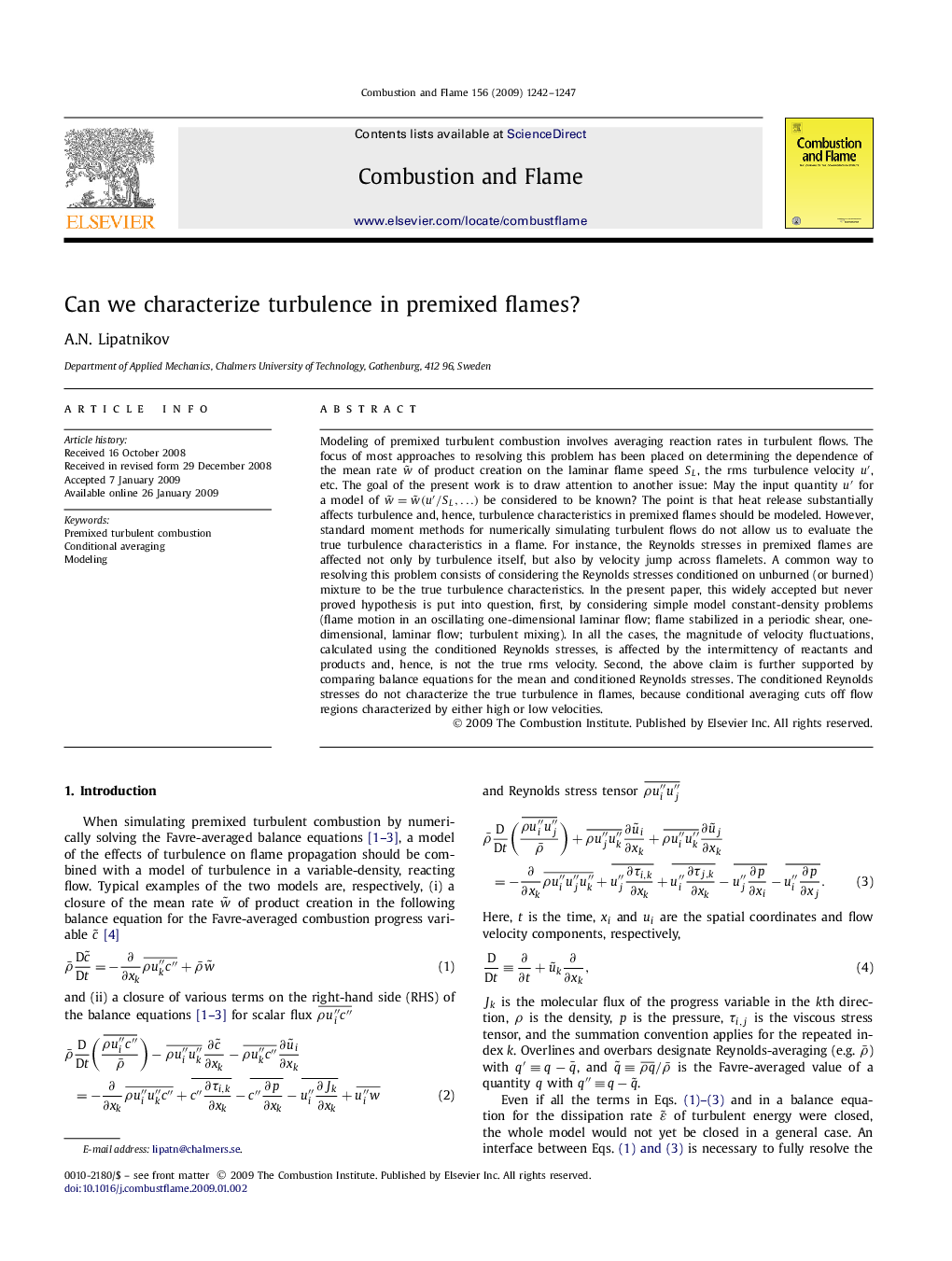| Article ID | Journal | Published Year | Pages | File Type |
|---|---|---|---|---|
| 166990 | Combustion and Flame | 2009 | 6 Pages |
Modeling of premixed turbulent combustion involves averaging reaction rates in turbulent flows. The focus of most approaches to resolving this problem has been placed on determining the dependence of the mean rate w˜ of product creation on the laminar flame speed SLSL, the rms turbulence velocity u′u′, etc. The goal of the present work is to draw attention to another issue: May the input quantity u′u′ for a model of w˜=w˜(u′/SL,…) be considered to be known? The point is that heat release substantially affects turbulence and, hence, turbulence characteristics in premixed flames should be modeled. However, standard moment methods for numerically simulating turbulent flows do not allow us to evaluate the true turbulence characteristics in a flame. For instance, the Reynolds stresses in premixed flames are affected not only by turbulence itself, but also by velocity jump across flamelets. A common way to resolving this problem consists of considering the Reynolds stresses conditioned on unburned (or burned) mixture to be the true turbulence characteristics. In the present paper, this widely accepted but never proved hypothesis is put into question, first, by considering simple model constant-density problems (flame motion in an oscillating one-dimensional laminar flow; flame stabilized in a periodic shear, one-dimensional, laminar flow; turbulent mixing). In all the cases, the magnitude of velocity fluctuations, calculated using the conditioned Reynolds stresses, is affected by the intermittency of reactants and products and, hence, is not the true rms velocity. Second, the above claim is further supported by comparing balance equations for the mean and conditioned Reynolds stresses. The conditioned Reynolds stresses do not characterize the true turbulence in flames, because conditional averaging cuts off flow regions characterized by either high or low velocities.
